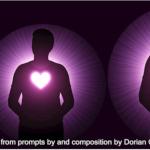Lectionary Reflections for Sunday, July 3, 2016
In the summer of 2004 my wife and I were invited to the islands of Fiji to offer a workshop on preaching. The Pacific Theological College on Suva, the country’s largest island, each year offered a continuing education event that brought together pastors and church workers from many surrounding island nations. We were invited to Fiji by a remarkable graduate of Perkins School of Theology, my seminary, Dr. David Upp who has spent his entire academic career moving around the world and teaching in numerous international venues from Latin America to South America to India and many places in between. We eagerly accepted his invitation
I was at the time working on my book, Preaching Creation, and determined that a discussion of the relationships between the Bible and care for the environment would be just the thing to address in a beautiful setting in the southern Pacific ocean. Little did I know just how important that subject was to be and just how much I needed to learn on the topic from that particular location.
 Before the conference was to begin on Suva, Diana and I arranged to spend four glorious days on the island of Taveuni, an impossibly stunning place some four miles east of the capital, Suva. Those four miles comprise the Somosomo Straights, a crystalline body of water, offering some of the world’s finest diving opportunities. Indeed, outside of our water-side bungalow, we could see the floor of the sea clearly about 50 feet down, picking out colorful and fanciful fish in profusion. Hilariously, Diana and I wer
Before the conference was to begin on Suva, Diana and I arranged to spend four glorious days on the island of Taveuni, an impossibly stunning place some four miles east of the capital, Suva. Those four miles comprise the Somosomo Straights, a crystalline body of water, offering some of the world’s finest diving opportunities. Indeed, outside of our water-side bungalow, we could see the floor of the sea clearly about 50 feet down, picking out colorful and fanciful fish in profusion. Hilariously, Diana and I wer e assigned the honeymoon cottage (we had been married 35 years by that time), while all of our fellow guests at the resort were real honeymooners! We took it as a sign that we still needed to be honeymooners. We snorkeled, swam, ate fabulous tropical fruit, hiked to jungle waterfalls, and had an unforgettable time.
e assigned the honeymoon cottage (we had been married 35 years by that time), while all of our fellow guests at the resort were real honeymooners! We took it as a sign that we still needed to be honeymooners. We snorkeled, swam, ate fabulous tropical fruit, hiked to jungle waterfalls, and had an unforgettable time.
Then it was off to work. The island of Vanua Levu, the largest in the country is not nearly as beautiful as Taveuni, because it is home to a rather large city, Suva, that brings with it all the good and bad a large city offers. Instead of our paradisal bungalow, we were housed in the rather spartan cinder block house of our host, replete with tropical pests of exotic kinds and a fair amount of grime from the many residents who had preceded us. Still, the small faculty of the school was marvelously welcoming, greeting us with a typical pig-centered feast, punctuated with gifts and song. I still gladly and proudly wear the island stole they gave me. All of that was not completely unexpected, though of course very welcome; the surprises were yet to come.
The story of the great foreign general, Naaman the Syrian, and his encounter with Israel and its fabled prophet, Elisha, is itself riddled with unexpected wonders. It begins in typical martial fashion. “Naaman, commander of the armies of the king of Aram, was a great man in the presence of his master and in high favor (literally, “lifted of face”), because YHWH had given him conquest for Aram” (2 Kings 5:1a). It does come as something of a shock that Naaman has achieved victory for Aram over Israel because of YHWH’s gift, but since it was thought that YHWH was in control of humanity’s fortunes, and since Israel’s prophetic heritage was forever noting YHWH’s universal sway over nations and peoples, we should not be unduly surprised. The genuine surprise will occur elsewhere in the tale.
In fact, we do not have long to wait before the first real surprise appears. “The man, though a powerful warrior, was a leper” (2 Kings 5:1b). This Hebrew word, m’zora’, clearly does not mean Hansen’s disease, an extremely debilitating condition that apparently does not occur in any human records until many centuries later. It is a painful and unsightly disease of the skin that may include what we would name psoriasis or eczema, conditions that cause flaking of the skin and discoloration of the hair. However, it can be so severe that its existence forces a king, Azariah (called Uzziah in other texts) to “live in a separate house” (2 Kings 15:5), while his son, Jotham, ruled publically. In any case, Naaman’s skin disease was difficult enough to bring deep concern for the general and his family, concern enough to consider seeking a cure, even in the most unlikely of places.
The surprises continue. A tiny Israelite slave girl, captured in one Aramean raid or another, and forced to attend to the general’s wife, informs her mistress, “If only my lord were with the prophet in Samaria! That man would cure him of his leprosy” (2 Kings 5:3). Out of the mouth of the slave girl comes the answer the great man is looking for. The height of his desperation is indicated by his willingness to trust his ailing body even to his vanquished enemy, Israel. And he will make the trip only on the word of the slave girl, an improbable emissary indeed!
At the conference on Fiji, I preached and taught what I believed the Bible had to say about the environment, how God had created the whole cosmos, including all the creatures in it, human and animal, and how God then bid us to act as God would act, loving and caring for the world, and finally discovering our true place in that world, namely as a part of it rather than at the center of it. I said all this as clearly and as forcefully as I could; I believed it then and still believe it now as the climate disaster becomes ever more certain and more dangerous.
Naaman’s personal leprous disaster drives him to plan a trip to Israel, but this time not as conqueror but as sickened supplicant. But first he must go through the hoops of ancient channels of diplomacy. He asks his king to write a letter of introduction to the king of Samaria, the northern kingdom of Israel, to smooth his way into the presence of the mighty prophet, Elisha, fabled for his miraculous abilities to effect cures. The king of Aram agrees to write the letter, while Naaman prepares to depart, assembling a vast caravan of silver and gold and festal garments, stacked on numerous carts, guarded by a phalanx of his finest soldiers. No general would or could do less!
Unfortunately, the king’s letter, though intended to assuage any fears the Israelite monarch may have as he watches the general and his enormous train approach, instead terrifies the king due to its straightforward, though perhaps ambiguous prose. “When this letter reaches you, know that I have sent to you my servant Naaman, that you may cure him of his leprosy” (2 Kings 5:6). What, shouts the king, tearing his royal robes in horror. “Am I God to give death or life, that this man sends me word to cure someone of leprosy” (2 Kings 5:7)? This letter, reasons the king, is nothing more than a ruse to start another war. Once I fail to effect the cure, which I surely will, the Arameans will think I do not care about their general, and will come at me again with force of arms.
Fortunately, the prophet hears that the king has torn his clothes in terror, and himself sends a letter, calming the king and suggesting that he send Naaman to him; that way all will know “that there is a prophet in Israel” (2 Kings 5:8). So, after receiving Elisha’s address from the king, and coordinating his GPS, Naaman heads toward the house of the prophet. He brings all of his entourage with him and draws up to the entrance to Elisha’s house, horses stamping and wheezing, chariots squeaking and creaking in the dust. And then another improbable emissary appears.
Instead of Elisha, an unnamed messenger steps from the house and announces to the great throng, and especially to the general, “Go, wash in the Jordan seven times, and your flesh will be restored and you will be clean” (2 Kings 5:10). And with that he turns and heads back through the door. And Naaman is enraged, commanding that all the chariots and horses turn around and head for Aram. “Does this so-called prophet not know who I am,” he fumes? I thought he would come out with magic robes whipping in the wind, wave his arms about, calling on the name of his God, YHWH, point at my skin and cure the leprosy. And the Jordan River? I know the Jordan River; we have just passed through that muddy creek. There are fabulous, rushing clear streams in our own land that make the Jordan look pathetic! I will not stand here and be treated like this. We are not amused! We are going home!
And still one more improbable emissary shows up in the story. Again, some servants (the third time servants have delivered the powerful truths of the tale) admonish their leader, saying that if the messenger had asked Naaman to do something really hard, he would have done it, thinking that a cure can only come through arduous trial. How much more should he do this simple thing, dipping his body into the Jordan? The general again listens to a servant, takes his Jordan bath, and comes out clean as a baby (2 Kings 5:13-14). This grand story is driven by improbable emissaries at every crucial turn.
As my wife and I concluded our conference with the church leaders of the South Pacific, we served a communion of coconut milk and coconut meat. But among the participants lurked an improbable emissary that I needed to hear. He came up to me quietly,  and, I assumed, to thank me for my work and words at the conference. He did do that, and most generously, but he had something more to say to me. I paraphrase his brief speech, words seared into me after these twelve years. “I come from the island nation of Keribati (pronounced “Keer-i-bas; see picture above). It is at the equator, close to the international date line, about half-way between Hawaii and Australia. The village I grew up in is now regularly under water, since our rainfall has increased and the sea levels have risen each year since the 1980’s.” He then looked right in my eyes. “And you in the west are the problem. Your life style is destroying my homeland.” I was stunned into silence. I cannot remember what I said in response, if anything. H
and, I assumed, to thank me for my work and words at the conference. He did do that, and most generously, but he had something more to say to me. I paraphrase his brief speech, words seared into me after these twelve years. “I come from the island nation of Keribati (pronounced “Keer-i-bas; see picture above). It is at the equator, close to the international date line, about half-way between Hawaii and Australia. The village I grew up in is now regularly under water, since our rainfall has increased and the sea levels have risen each year since the 1980’s.” He then looked right in my eyes. “And you in the west are the problem. Your life style is destroying my homeland.” I was stunned into silence. I cannot remember what I said in response, if anything. H e turned and walked away, after again thanking me for the conference.
e turned and walked away, after again thanking me for the conference.
Would that I could do something easy, like dipping myself in the Pacific seven times and thereby reverse the changing climate and save my emissary’s home. But there will be no easy fix this time, no magic pool, no predictable happy ending. I, and you, and all of us must get to work, changing our life styles, driving hybrid or electric cars, or riding our bikes. Spending less on luxuries we do not need, electing leaders who do not assume, foolishly, that climate change is a hoax or a liberal plot. By all measures, it is all too real, and must be addressed urgently and effectively. I received my improbable emissary, and his words linger and burn within me. Yet, I cannot remember his name. Like the unnamed servants in the story of Naaman the Syrian, my emissary did his work well, and I will never forget.















